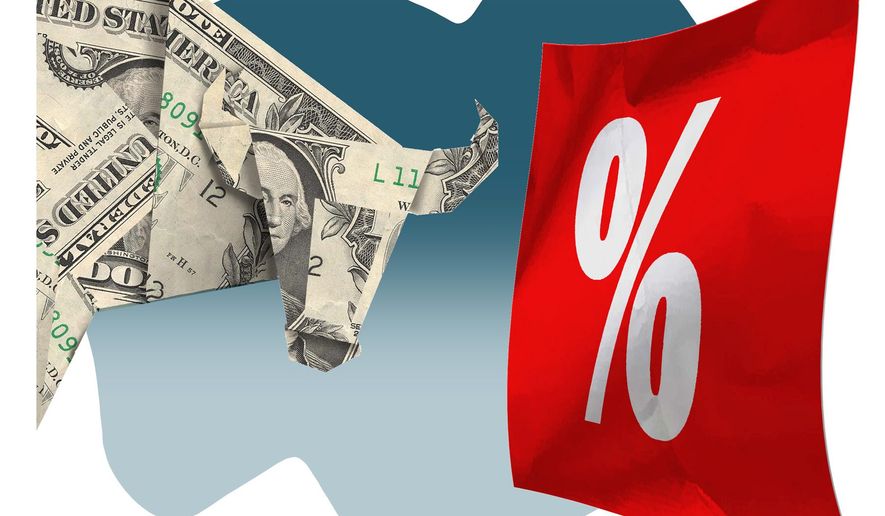OPINION:
It’s official. President Trump wants to index capital gains taxes for inflation. This would be a big stimulus boost for the U.S. economy immediately and over time and could get us back to 3 percent to 4 percent growth by liberating potentially hundreds of billions of dollars for new capital investment. My sources tell me that the president has told his White House team that if he can get his legal counsel to give him a ruling that he has the right to make this change administratively, he will do exactly that.
I’m not a lawyer, so I won’t weigh in on whether the White House has the authority to define what constitutes a capital “gain” on a stock or a property. Traditionally, a gain has been defined as the difference between the price that an asset has been bought at and the price it is sold at. The issue is whether these gains should be adjusted for the inflation rate over the time period the asset was owned. In other words, should the gain be defined as the change in the cost of living over the period.
If you bought a stock 10 years ago for $1,000 and over that time the inflation rate was, say 20 percent, if you sold it for $1,200 is that $200 a genuine gain to the shareholder?
In an ideal world, Congress would define a gain over for an asset held over a long period of time as taking into account inflation. This would reward risk taking and capital investment by reducing the “real” capital gains tax. It would also induce more shareholders to sell stocks in old assets and companies like Macy’s and buy into shares of new-age companies that will be the wealth and job creators of the future. I suspect most Americans would think that would be a fair treatment.
By the way, Congress wants to give itself a cost-of-living raise each year, a measure supported by such leading liberals as Alexandria Ocasio-Cortez. Why not a similar deal for those 100 million Americans or so who own stocks?
Even Democratic Senate Minority Leader Charles E. Schumer of New York has in the past spoken out in favor of killing this inflation penalty. He once said on the House floor “If we really want to increase growth, there are proposals that we can do. I would be for indexing all capital gains and savings and borrowing.” As leader of the new left-wing Democratic Party, he is now against this after he was for it.
Stock ownership has been treated roughly in the tax code over the past decade. Under President George W. Bush, the tax was lowered to 15 percent. But under President Obama, the rate rose almost 60 percent, to 23.8 percent — thanks in part to an Obamacare tax increase. This rate is higher than even at the end of Clinton era.
It is also one of the few tax rates Mr. Trump has failed to cut to promote a stronger economy. A run at reducing the Obamacare capital gains penalty was killed in the Senate because of class warfare arguments.
The left says that investors are not very sensitive to the capital gains tax rate. Len Burman, an economist at the Brookings Institution, says that the rate of tax has not had much impact on the buying and selling of stocks. But the evidence of the last 40 years tends to refute that.
After the capital gains tax increase in 1986 from 20 percent to 28 percent, capital gains revenues actually fell from $44 billion a year to $27 billion a year by 1991 because fewer people sold stock at the higher tax rate. After Bill Clinton cut the capital gains tax back down to 20 percent again, capital gains revenues surged from $54 billion in 1996 to $99 billion in 1999. The rich actually paid more tax with the lower rates.
No one knows for sure how much unrealized capital gains that would be sold if indexing were adopted as federal tax policy. In the short term, this could mean hundreds of billions of dollars of sales of stock and then tens of billions of dollars of tax revenues collected by the government.
Without indexing, some of this revenue would never be collected because shareholders often hold onto stock until death and pass it on to their heirs tax free. Some of the stocks would be put in charitable foundations where tax on the gains is never paid. So the liberal charge that this policy would be a tax give-away to the rich is highly exaggerated.
History also shows that the capital gains tax — all other things equal — is inversely related to venture capital funding for start-up firms. A low capital gains tax attracts dollars to higher-risk investments. What’s wrong with a nice boost for the women and men who start new companies in America?
The lawyers at the Treasury Department and the Office of Legal Counsel will determine whether indexing can and should be done with a stroke of the pen by President Trump. But as an economic matter, this tax change would be a home run crashing off the centerfield score board.
• Stephen Moore, a columnist for The Washington Times is a senior fellow at the Heritage Foundation. He is the co-author of “Trumponomics: Inside the America First Plan to Revive Our Economy.”




Please read our comment policy before commenting.